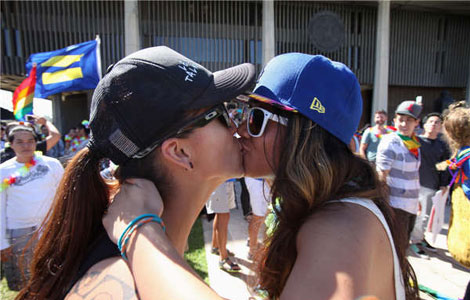

WASHINGTON - The world powers are united in negotiations with Iran over its disputed nuclear program, said the White House on Tuesday, refuting blame that divisions among the six negotiating partners resulted in the failure of talks in Geneva last week.
The P5+1 group were unified on the proposal put forward at the talks but Iran did not accept the deal, said White House spokesman Jay Carney at a daily press briefing.
Talks between Iran and the P5+1 group, namely Britain, China, France, Russia and the United States plus Germany, ended on Saturday in Geneva without an agreement. Iranian Foreign Minister Mohammad Javad Zarif blamed a split between world powers for the failure.
"Gaps remain and there are still important issues to be addressed between the P5+1 and Iran," Carney said, adding that there was, however, important progress made at the Geneva talks which were "cordial, substantive and serious."
Officials from the two sides will resume negotiations on November 20.
US Secretary of State John Kerry is scheduled to brief the Senate Banking Committee on Wednesday on talks in Geneva.
"The secretary will be clear that putting new sanctions in place would be a mistake while we are still determining if there is a diplomatic path forward," US Department of State spokesman Jen Psaki said at a daily briefing on Tuesday.
Psaki said that Kerry would ask for "a temporary pause" in sanctions against Iran without taking them away, in order to ensure that legislative strategy and negotiating strategy would run hand-in-hand.







